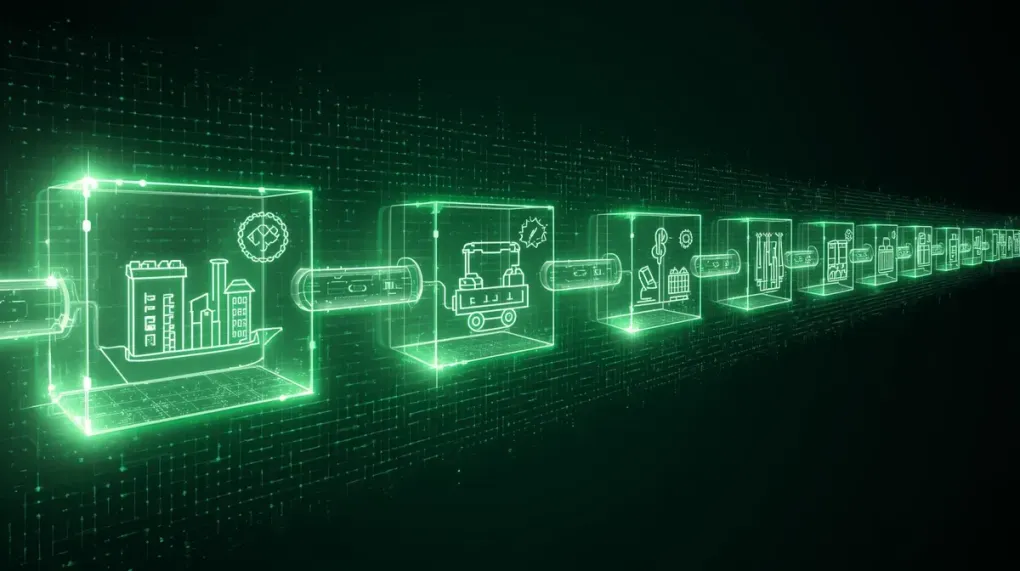
The Unbreakable Chain: How Blockchain is Forging a New Era of Supply Chain Trust
For all the noise and speculation surrounding blockchain, its most profound impact may have nothing to do with cryptocurrencies. Quietly, behind the scenes, it is emerging as a transformative force in one of the world’s most complex domains: supply chain management.
The promise is simple yet powerful: a single, shared, and immutable ledger that provides unprecedented transparency, security, and efficiency. A recent in-depth review from ScienceDirect titled “Blockchain technology in supply chain management” explores the innovations, applications, and remaining challenges of this powerful technology.
At its core, blockchain offers a solution to the age-old problem of trust. In a traditional supply chain, data is siloed. Each participant—manufacturer, supplier, shipper, retailer—maintains its own records, leading to disputes, delays, and a lack of visibility. Blockchain creates a decentralized source of truth that all parties can rely on.
More Than Just a Ledger: Key Applications
The application of blockchain in the supply chain goes far beyond simple record-keeping. Here are some of the key areas where it’s making a difference:
-
Enhanced Traceability and Provenance: By creating a tamper-proof record of a product’s journey from raw material to end consumer, blockchain provides an unparalleled level of traceability. This is critical for combating counterfeiting in industries like pharmaceuticals and luxury goods, as well as for verifying the origin of ethically sourced materials.
-
Smart Contracts for Automation: These self-executing contracts can automate a wide range of supply chain processes. For example, a smart contract could automatically release payment to a supplier once an IoT sensor confirms that a shipment has arrived at its destination. This reduces administrative overhead, minimizes delays, and ensures that all parties adhere to their agreements.
-
Improved Supplier Management: Blockchain can be used to create distributed reputation systems that track supplier performance, certifications, and compliance history. This allows companies to make more informed decisions when selecting partners and helps to build a more resilient and trustworthy supply network.
-
Streamlined Compliance and Auditing: By providing a visible and immutable record of all transactions and movements, blockchain dramatically simplifies the process of regulatory compliance and auditing. This is particularly valuable in highly regulated industries like food and beverage and aerospace.
The Hurdles to Mainstream Adoption
Despite its immense potential, the widespread adoption of blockchain in supply chains is not without its challenges. The ScienceDirect paper highlights several key hurdles that must be overcome:
- Scalability: Public blockchain networks can struggle to handle the high volume of transactions required for complex, global supply chains. While private and consortium blockchains offer better performance, they come with their own trade-offs in terms of decentralization.
- Interoperability: The world will not run on a single blockchain. Creating standards and protocols that allow different blockchain platforms to communicate with each other, as well as with legacy systems, is a major technical challenge.
- Regulatory Uncertainty: The legal and regulatory frameworks for blockchain and smart contracts are still evolving. This uncertainty can make companies hesitant to invest in the technology.
- Cost and Complexity: Implementing a blockchain-based system requires significant investment in technology and expertise. For many organizations, the return on investment is not yet clear.
My Perspective: A Foundational Shift
I believe we are witnessing a foundational shift in how supply chains are managed. The move to blockchain is not just a technological upgrade; it’s a paradigm shift from a system based on siloed data and implicit trust to one based on shared data and cryptographic certainty.
The challenges are real, but they are not insurmountable. As the technology matures, as standards emerge, and as the regulatory landscape becomes clearer, the benefits of blockchain will become increasingly compelling.
The journey to full adoption will be gradual, but the direction of travel is clear. Blockchain is forging a new era of trust and transparency in the supply chain, creating a system that is not only more efficient and secure, but also more accountable and resilient. The unbreakable chain is being built, one block at a time.
This post draws on insights from the academic paper “Blockchain technology in supply chain management: Innovations, applications, and challenges” published in Telematics and Informatics Reports.


